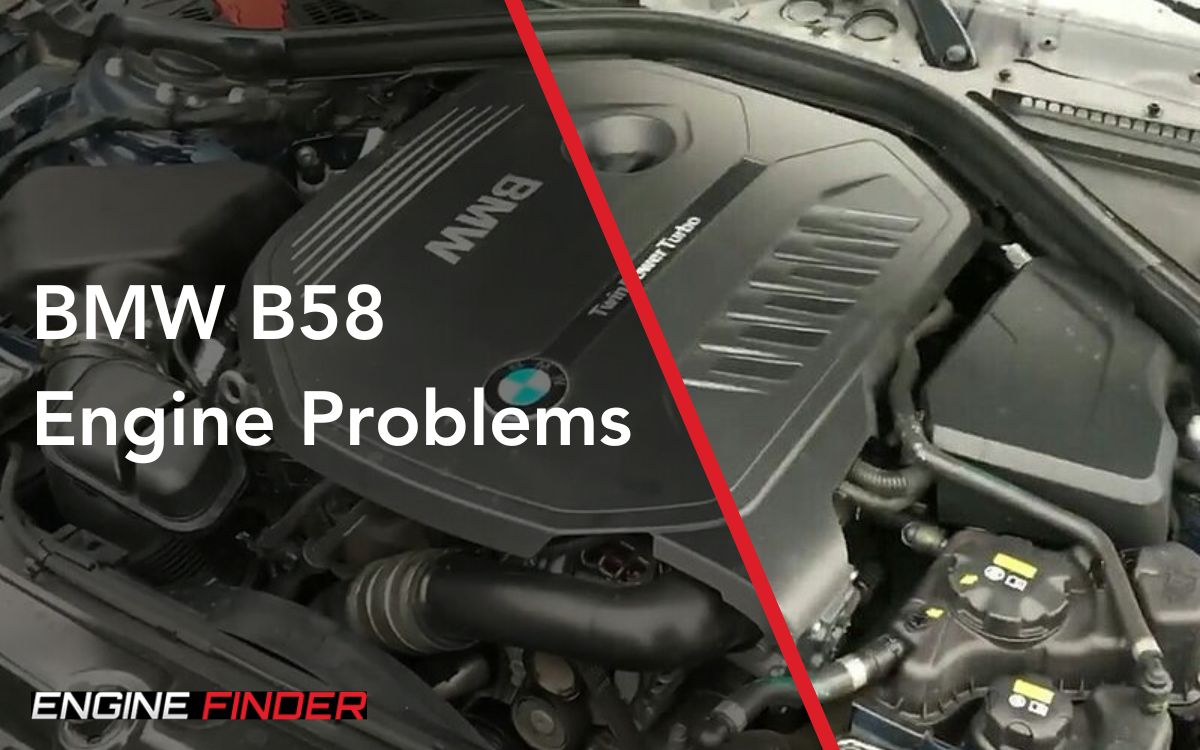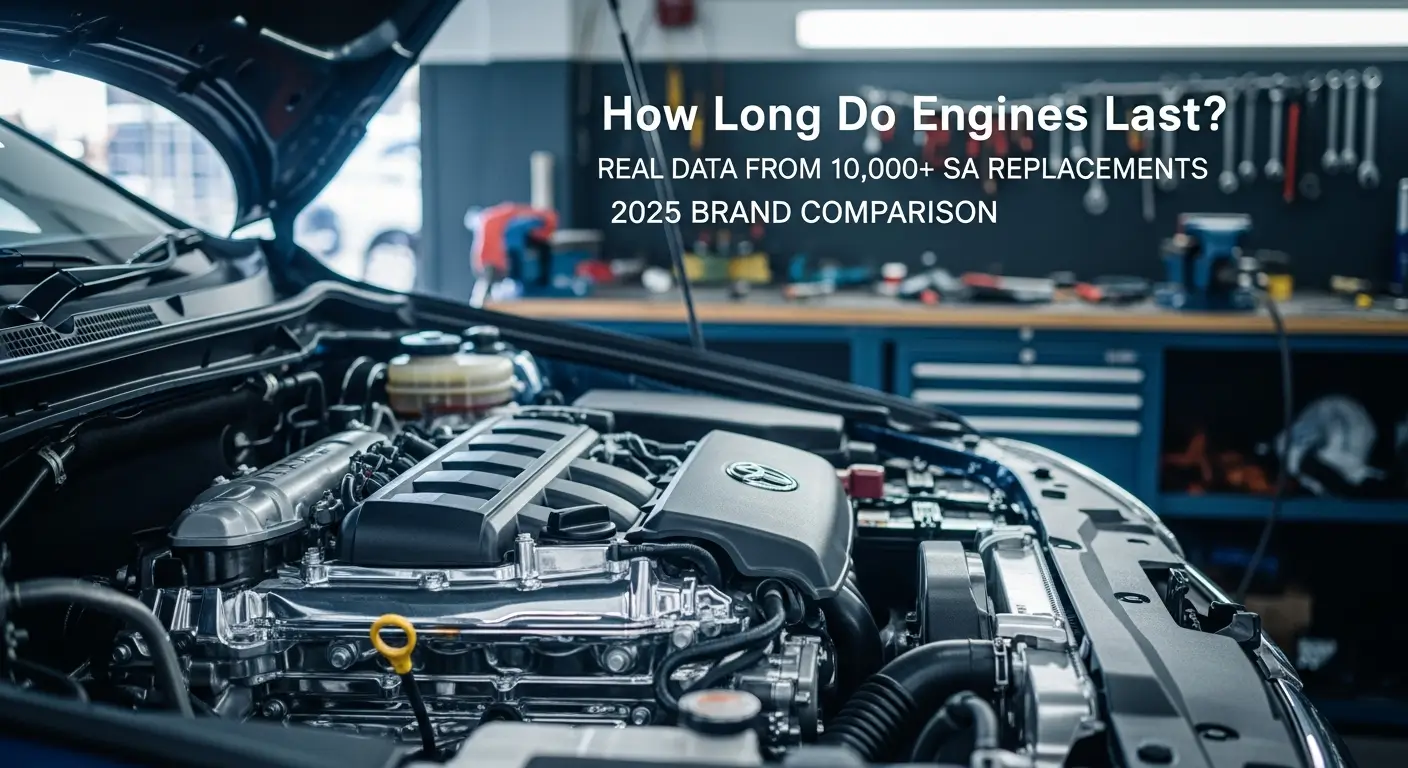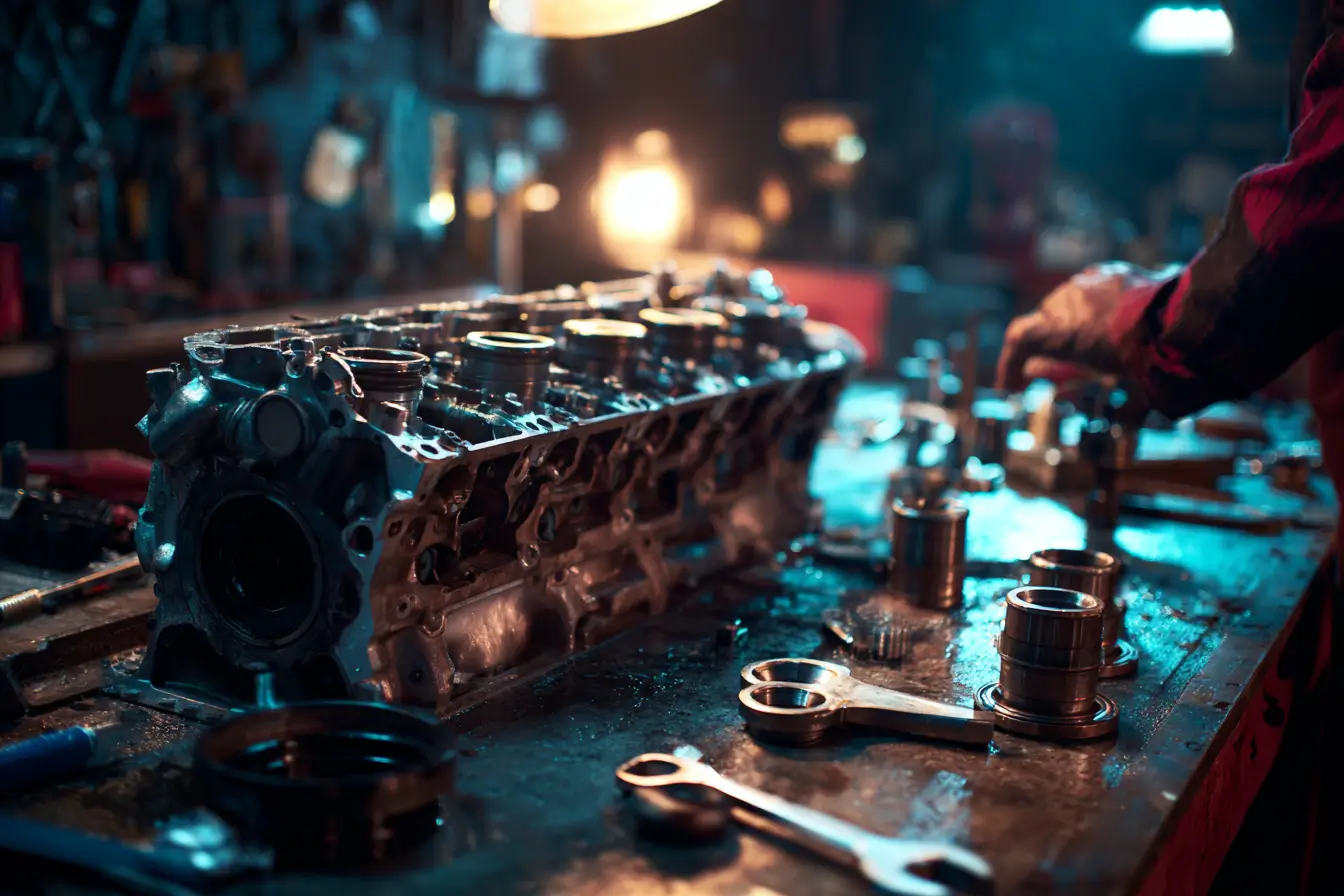
BMW B58 Engine Problems: Complete Turbo Inline-6 Troubleshooting Guide
Key Takeaways
| Problem | Main Symptoms | Possible Causes |
|---|---|---|
| VANOS Solenoid Failure | Power loss, rough idle | O-ring degradation, solenoid wear |
| Valve Cover Gasket Leaks | Oil leaks, burning smell | Gasket deterioration, heat stress |
| Oil Filter Housing Issues | Oil filter disintegration | Poor filter quality, housing wear |
| Coolant Consumption | Low coolant levels | Tank cap failure, system leaks |
| PCV Valve Integration Problems | Oil leaks, crankcase pressure | Integrated PCV valve failure |
The BMW B58 is a highly regarded 3.0-liter turbocharged inline-six engine that has powered numerous BMW models since 2015, including the 340i, 440i, M340i, X3 M40i, and even the Toyota Supra A90. Known for exceptional tuning potential and robust reliability, the B58 represents BMW’s evolution from the legendary N54 and N55 engines. While generally reliable, understanding its common issues helps ensure long-term dependability.
BMW B58 Engine Specifications
| Specification | Details |
|---|---|
| Engine Code | B58B30 (various sub-variants) |
| Displacement | 3.0L (2,998cc) |
| Configuration | Inline-6, DOHC, 4 valves per cylinder |
| Fuel System | Direct Injection with Port Injection |
| Turbocharging | Single Twin-Scroll Turbocharger |
| Power Output | 250-285 kW (335-382 hp) |
| Torque Output | 450-500 Nm |
| Production Years | 2015-Present |
1. VANOS Solenoid Failure
Causes
- O-Ring Degradation: The VANOS solenoid’s rubber O-ring deteriorates from heat and oil contamination.
- Electrical Failure: Internal solenoid electronics can fail over time.
- Oil Quality Issues: Poor oil maintenance affects VANOS hydraulic operation.
- Age-Related Wear: Normal wear after 80,000-120,000 km of service.
Symptoms
- Noticeable power loss during acceleration.
- Rough idle and uneven engine running.
- Slow throttle response and reduced performance.
- Check engine light with VANOS-related fault codes.
Solution
- Replace VANOS solenoid with updated BMW parts.
- Inspect and replace O-ring seals as preventive maintenance.
- Ensure proper oil viscosity and quality for VANOS operation.
- Reset adaptations after replacement.
DIY Difficulty / Hours
- VANOS Solenoid Replacement: Medium difficulty / 2-4 hours
- Professional Repair: R3,500 - R6,000 including parts and programming.
Maintenance Warning
BMW recommends replacing VANOS seals every 80,000 km as preventive maintenance to avoid unexpected failures.
2. Valve Cover Gasket Leaks
Causes
- Heat cycling causing rubber gasket deterioration.
- Age-related hardening and cracking of gasket material.
- Improper installation torque during previous service.
- Oil contamination accelerating gasket breakdown.
Symptoms
- Oil leaks visible around the valve cover perimeter.
- Burning oil smell from the engine bay.
- Oil-soaked spark plugs and ignition coils.
- Oil level decrease between service intervals.
Solution
- Replace valve cover gasket with genuine BMW parts.
- Clean all mating surfaces thoroughly before installation.
- Replace spark plug seals simultaneously.
- Follow proper torque specifications during assembly.
DIY Difficulty / Hours
- Valve Cover Gasket Replacement: High difficulty / 4-6 hours
- Professional Repair: R4,500 - R8,000 including gasket and spark plug seals.
Maintenance Tip
The B58’s advanced heat retention system helps minimize temperature fluctuations, but regular inspection after 100,000 km is recommended.
3. Oil Filter Housing Issues
Causes
- Poor quality oil filters breaking down internally.
- Plastic oil filter housing developing cracks.
- Inadequate filtration allowing contaminants into engine.
- Extended oil change intervals stressing filtration system.
Symptoms
- Oil filter disintegration during oil changes.
- Metal particles in oil or oil pan.
- Reduced oil pressure readings.
- Oil leaks from filter housing area.
Solution
- Use only high-quality BMW-approved oil filters.
- Consider aftermarket aluminum filter housing upgrade.
- Inspect filter housing for cracks during service.
- Maintain proper oil change intervals (10,000-15,000 km).
DIY Difficulty / Hours
- Oil Filter Housing Replacement: High difficulty / 3-5 hours
- Professional Repair: R3,000 - R5,000 for housing. R8,000+ for aluminum upgrade.
4. Coolant Consumption
Causes
- Defective coolant expansion tank cap allowing pressure loss.
- Small internal leaks in cooling system components.
- Head gasket micro-leaks (rare but possible).
- Normal evaporation in high-performance applications.
Symptoms
- Gradual coolant level decrease requiring regular top-ups.
- Low coolant warning messages on dashboard.
- No visible external leaks but consumption continues.
- Occasional overheating under heavy load.
Solution
- Replace coolant expansion tank cap with updated design.
- Pressure test cooling system to identify leaks.
- Inspect all coolant hoses and connections.
- Use BMW-approved coolant and maintain proper concentration.
DIY Difficulty / Hours
- Coolant System Inspection: Low difficulty / 1-2 hours
- Professional Repair: R1,500 - R3,000 for cap and inspection. R8,000+ for major leaks.
Monitoring Information
Regular coolant level checks are essential, especially during the first 100,000 km when consumption may be higher than expected.
5. PCV Valve Integration Problems
Causes
- PCV valve integrated into valve cover failing as a unit.
- Crankcase pressure issues affecting valve operation.
- Oil contamination clogging PCV system passages.
- Age-related failure of PCV valve diaphragm.
Symptoms
- Oil leaks from valve cover area.
- Increased crankcase pressure and oil consumption.
- Rough idle and performance issues.
- Oil vapor in intake system.
Solution
- Replace entire valve cover assembly with integrated PCV valve.
- Inspect breather hoses for cracks or blockages.
- Clean intake system if oil contamination is present.
- Use high-quality engine oil to minimize PCV contamination.
DIY Difficulty / Hours
- Valve Cover with PCV Replacement: Very High difficulty / 6-8 hours
- Professional Repair: R8,000 - R15,000 for complete valve cover assembly.
FAQ
Is the BMW B58 engine reliable?
Yes, the B58 is considered one of BMW’s most reliable engines. While it has some common issues, they are generally manageable with proper maintenance and are well-documented.
What’s the difference between original B58 and B58TU1?
The B58TU1 (introduced in 2019) features improved timing chain design, enhanced fuel system, revised cylinder heads, and better emissions compliance while maintaining similar power output.
How often should I service a B58 engine?
Follow BMW’s service intervals: oil changes every 15,000 km or annually, with more frequent changes (10,000 km) recommended for performance driving or tuned engines.
Can I tune a B58 engine safely?
Yes, the B58 has excellent tuning potential. With proper supporting modifications and professional tuning, significant power gains are achievable while maintaining reliability.
What cars use the BMW B58 engine?
The B58 powers various models including BMW 340i, 440i, M340i, X3/X4 M40i, Z4 M40i, and the Toyota Supra A90. It’s also found in some BMW M models as the base engine.
How does the B58 compare to the N54/N55?
The B58 offers better reliability than the N54, improved fuel economy over the N55, and maintains excellent tuning potential while incorporating lessons learned from previous engines.
Conclusion
The BMW B58 engine represents the culmination of BMW’s inline-six development, combining the performance heritage of the N54 with significantly improved reliability. While no BMW engine is without its quirks, the B58’s issues are well-understood, manageable, and relatively inexpensive compared to major engine failures. With proper maintenance, including attention to VANOS system care and quality oil changes, the B58 can provide exceptional performance and longevity.
For B58 owners seeking quality replacement engines or components, Engine Finder offers access to premium BMW engines for sale from trusted suppliers across South Africa.
References and Further Reading
Related Articles
Explore more insights on similar topics

How Long Do Engines Last on Average? Complete Longevity Guide
Understand real-world engine lifespan ranges, warning signs, lifecycle stages, costs, and maintenance best practices for South African drivers.

How Does an Engine Overhaul Work? Complete Guide to Engine Rebuilds
Learn everything about engine overhauls: types, warning signs, process, costs, and when to rebuild vs replace your engine in South Africa.
.webp)
Timing Chain vs Timing Belt: Complete Guide to Cambelt Replacement & Lifespan
Learn everything about timing chains and timing belts (cambelts): differences, lifespans, replacement costs, and which is better for your engine in South Africa.
Important Disclaimer
This content is for informational purposes only and is based on research from automotive industry sources. Engine Finder is not a certified automotive repair facility. Always consult with qualified automotive professionals before performing any repairs or maintenance. Improper repairs can result in personal injury, property damage, or vehicle malfunction. We assume no responsibility for actions taken based on this information.
